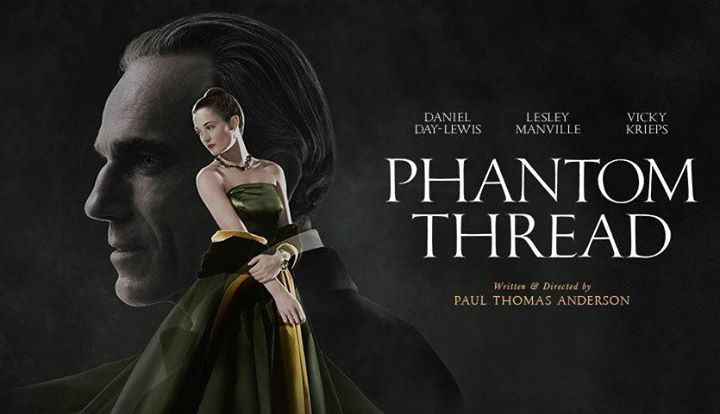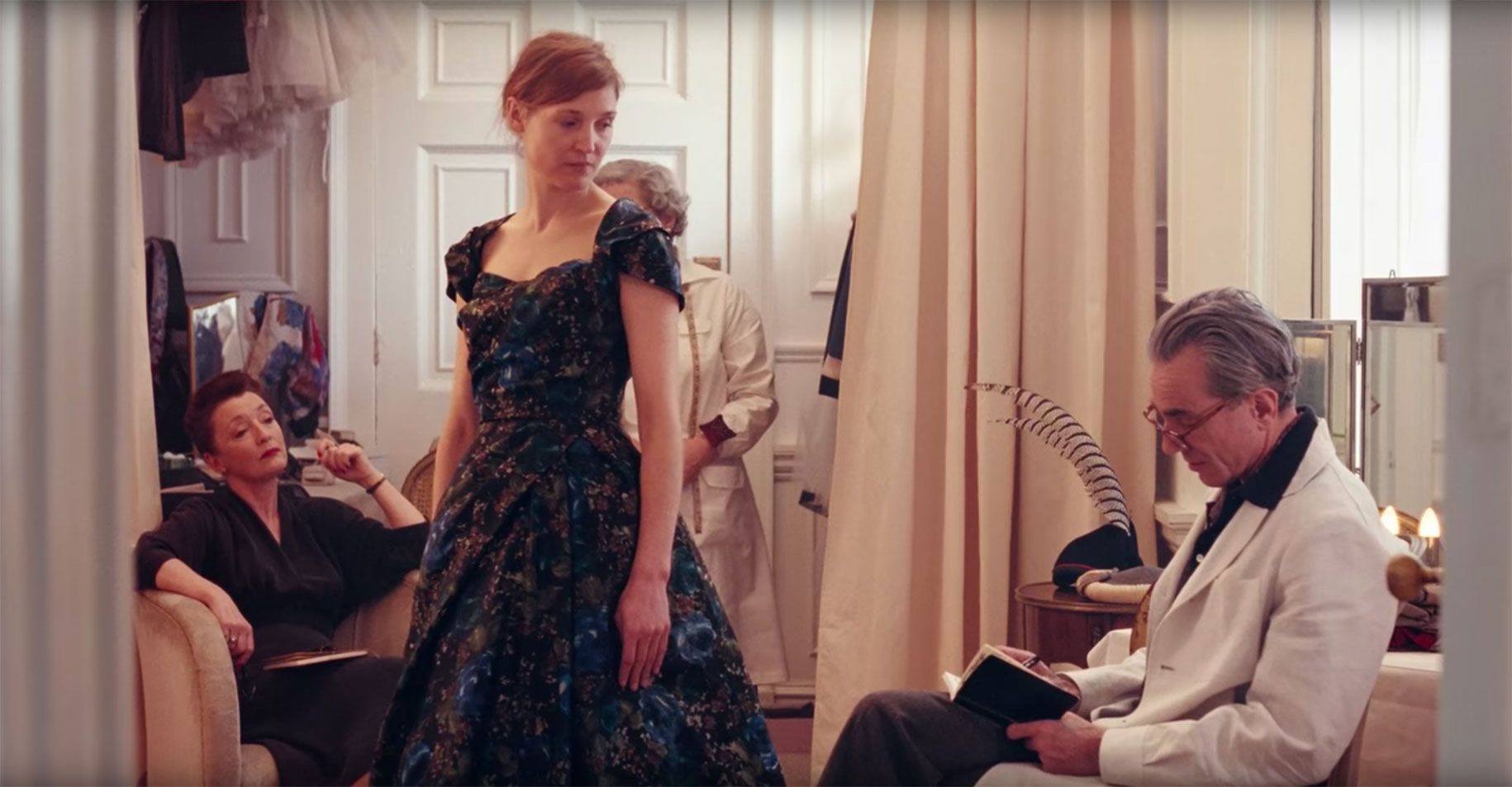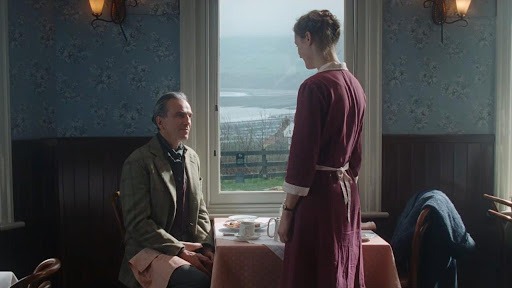Phantom Thread (2017)

Phantom Thread is a 2017 historical drama film directed and written by Paul Thomas Anderson. Set in the world of haute couture fashion in 1950s London, the film explores the intricate lives of a renowned dressmaker, his muse, and the complex relationships that emerge from their interactions. With Daniel Day-Lewis delivering a captivating performance as the brilliant but obsessive designer Reynolds Woodcock, and Lesley Manville playing his equally fascinating sister Cyril, the film intricately delves into themes of control, love, and power.
The story revolves around Reynolds Woodcock, a highly talented and perfectionist fashion designer who runs a prestigious fashion house in London. Reynolds lives a structured, solitary life devoted to his work, with little room for personal connections. He shares a home and business with his sister Cyril, who manages both his professional affairs and personal life. Cyril is the steady, controlling presence that ensures Reynolds’ world remains focused on his craft, yet she also harbors her own desires and ambitions for control. Their relationship is complex, a blend of loyalty, rivalry, and a subtle undercurrent of unspoken tension.
The plot takes a dramatic turn when Reynolds meets Alma, a young woman who works as a waitress and soon becomes his muse and lover. Alma, played by Vicky Krieps, challenges the carefully constructed order of Reynolds’ life. Her beauty and charm captivate him, but Alma’s independence and growing assertiveness disrupt Reynolds’ rigid routines. What begins as a romance slowly evolves into a battle for power and control, as Alma starts to push back against Reynolds’ obsessive need for dominance, creating an unsettling yet fascinating dynamic between the two.

At its core, Phantom Thread is a story about obsession and the complicated nature of love. Reynolds’ obsession with perfection and control extends beyond his designs, seeping into every aspect of his personal life. His relationship with Alma is not just one of love, but of manipulation and submission. However, Alma’s own strength and ability to resist Reynolds’ authority ultimately alter the balance of power. The film masterfully explores the tensions between these characters, leaving viewers to question what true love and devotion look like in a relationship marked by dominance and vulnerability.

The visual beauty of Phantom Thread is one of its defining features. Anderson’s direction, combined with the stunning costume design, captures the elegance and intricacy of the fashion world while also mirroring the delicate and sometimes strained relationships between the characters. The costumes themselves become an extension of the characters’ inner lives—Reynolds’ impeccable, perfectly tailored garments symbolize his desire for control, while Alma’s evolving wardrobe reflects her transformation from an innocent muse to a woman who takes charge of her own fate.

In conclusion, Phantom Thread is a cinematic exploration of love, obsession, and control, set against the backdrop of the high-stakes world of fashion. With brilliant performances from Daniel Day-Lewis, Lesley Manville, and Vicky Krieps, the film captivates its audience with its nuanced portrayal of complex relationships. The combination of exquisite direction, stunning visuals, and a haunting score makes Phantom Thread a timeless masterpiece that lingers in the mind long after the credits roll. It is a story that challenges the conventional ideas of love and power, leaving viewers to reflect on the intricate threads that bind us together.











